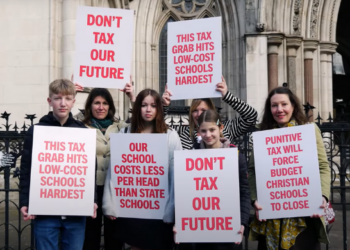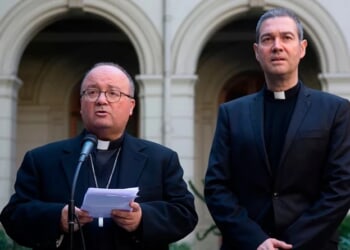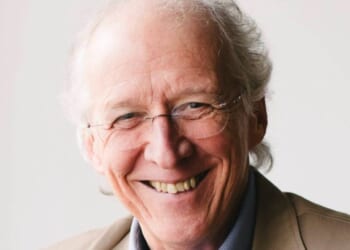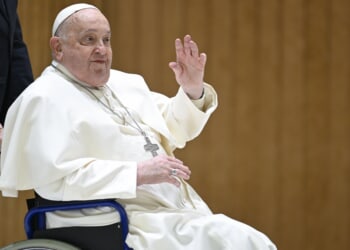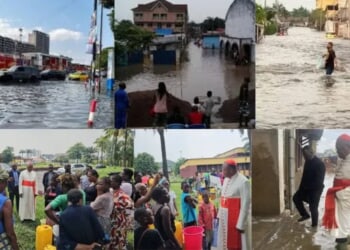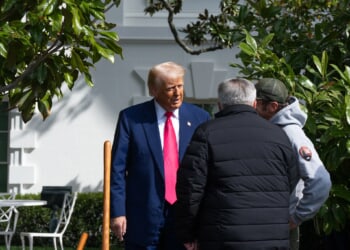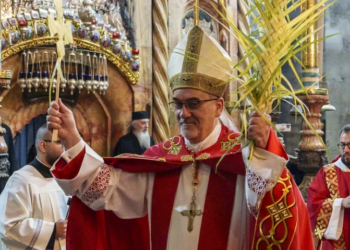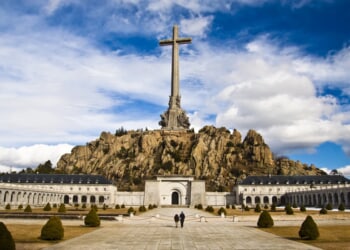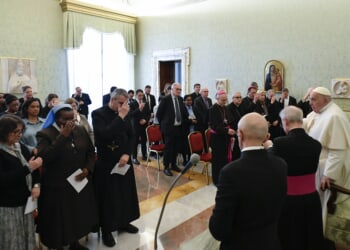CNA Newsroom, Apr 20, 2025 /
07:12 am
Pope Francis decried the numerous conflicts plaguing the planet and appealed to world leaders “not to yield to the logic of fear” in his Easter message “urbi et orbi” (to the city and to the world) on Sunday.
The pope’s traditional blessing, “urbi et orbi,” was read by Archbishop Diego Ravelli, the Master of Pontifical Liturgical Celebrations, as the 88-year-old pontiff, still convalescing, was present but physically limited.
Francis, who arrived at the central loggia of St. Peter’s Basilica in a wheelchair, greeted the faithful with a brief “Brothers and Sisters, Happy Easter” before asking Archbishop Ravelli to read the message on his behalf.
“I appeal to all those in positions of political responsibility in our world not to yield to the logic of fear which only leads to isolation from others, but rather to use the resources available to help the needy, to fight hunger and to encourage initiatives that promote development,” the message stated.
Earlier in the morning, at approximately 11:30 a.m., Pope Francis held a brief private meeting with U.S. Vice President JD Vance at the Casa Santa Marta, according to the Holy See Press Office.
The meeting, which lasted only a few minutes, provided an opportunity for the two to exchange Easter greetings.
Vice President Vance met Cardinal Pietro Parolin on Saturday regarding international relations, religious freedom, and humanitarian concerns.
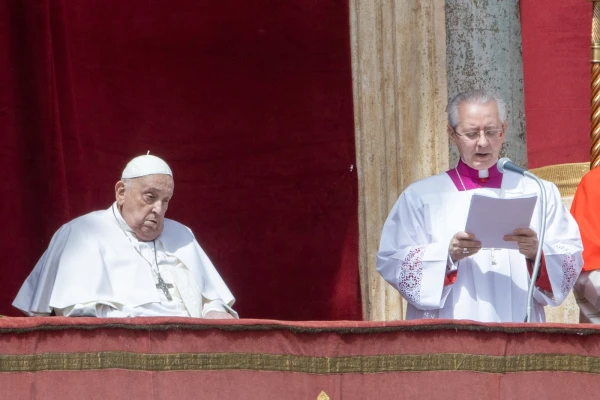
The pope’s Easter address — delivered amid a confluence of global conflicts — focused particularly on war-torn regions, including Ukraine, the Holy Land, Myanmar, and various parts of Africa.
Regarding Gaza, where “the terrible conflict continues to generate death and destruction and to create a dramatic and deplorable humanitarian situation,” Francis called for concrete action: “I appeal to the warring parties: call a ceasefire, release the hostages and come to the aid of a starving people that aspires to a future of peace!”
The Holy Father also lamented the “growing climate of anti-Semitism throughout the world” while expressing closeness to “the sufferings of Christians in Palestine and Israel, and to all the Israeli people and the Palestinian people.”
The pope’s message emphasized that “there can be no peace without freedom of religion, freedom of thought, freedom of expression and respect for the views of others.” He added that peace is also impossible without “true disarmament,” warning against the “race to rearmament” that threatens global stability.
Reflecting on the spiritual significance of Easter, Francis reminded the faithful that Christ’s resurrection represents “the basis of our hope” and that “hope does not disappoint!” He characterized this hope not as “an evasion, but a challenge” that “does not delude, but empowers us.”
The message “urbi et orbi” concluded with the pontiff’s customary invocation for a peaceful world: “Let us entrust ourselves to him, for he alone can make all things new.”
This year’s Easter celebration held particular significance as it coincided with this year’s 1700th anniversary of the Council of Nicaea and was celebrated on the same day by Catholics and Orthodox Christians following the Julian calendar.
After the blessing, Pope Francis greeted jubilant pilgrims from the popemobile, to shouts of joy from the crowd. It was the first time the pontiff used the popemobile to visit the square since his hospitalization.
(Story continues below)
Subscribe to our daily newsletter
Last updated on April 20, 2025, with further details.




